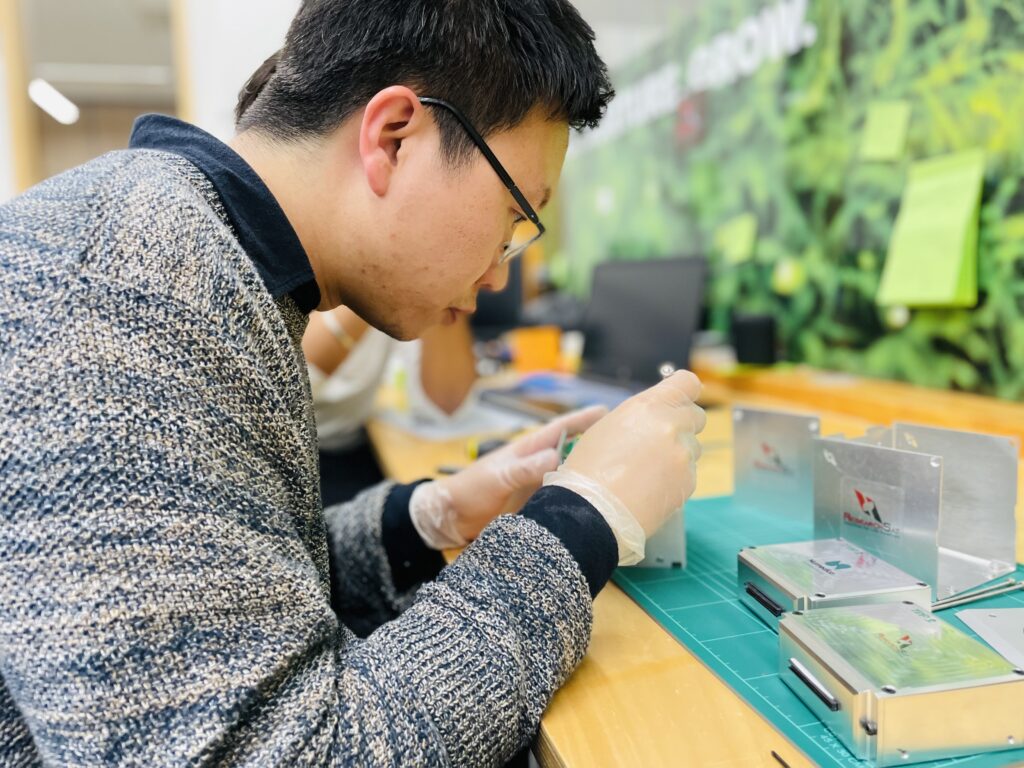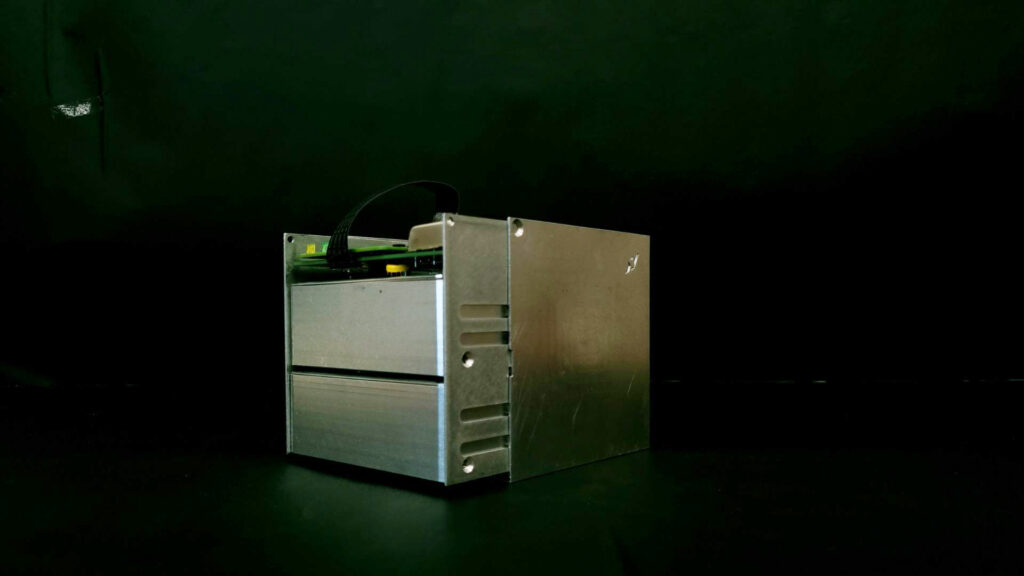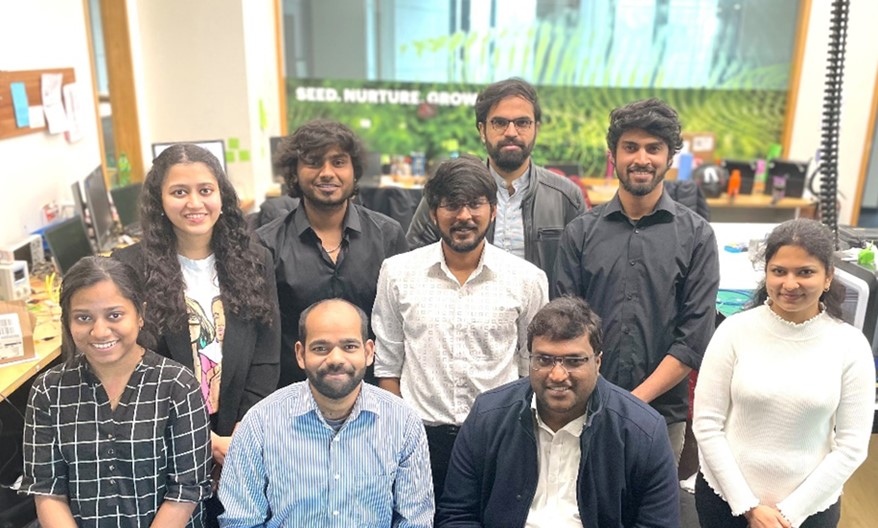Space has been humankind’s ‘next frontier’ to explore – and new discoveries are made daily. Medical research in space is today’s ‘bold frontier’ for human health. Going the extra mile (or 125km to low earth orbit, to be exact) for medical patients of the future takes on a totally new perspective.
Microgravity environments provide scientists with environments that can radically alter and accelerate medical research. One Australian startup is shooting for the moon – and beyond – to enable researchers around the world to conduct experiments in space affordably and efficiently. ResearchSat has put Adelaide on the world map for medical research – and taken one giant leap forward for Adelaide’s future.

OUT OF THIS WORLD
ResearchSat was founded in 2017 by RaviTeja Duggineni and Jibin Jeffrey Dhanaraj with the belief that every experiment they enable has the potential to change the world for the better. This company provides end-to-end services that enable space science research in the form of satellite platforms for researchers and organisations to run experiments in space. These payloads facilitate conditions for drug design and development for pharmaceutical companies on a commercial scale as well as provide opportunities to all academic researchers who are interested in space biology research.
The company’s scientists, engineers, and developers have created innovative proprietary technology that is truly out-of-this-world in the form of scientific CubeSats. CubeSats are small, standardised research modules that carry the potential to conduct meaningful science experiments in a reliable manner in microgravity environments.
Through CubeSats, ResearchSat’s mission is to explore the unique characteristics made available by microgravity and the company’s working to make space research accessible for all researchers and organisations.
RaviTeja shares his motivation for launching this company in Adelaide: “One of the major risks associated with space missions and conducting experiments in microgravity is an astronaut carrying different kinds of bacteria into space. Research has shown that bacteria in space becomes more aggressive and infectious – and this poses a huge risk when performing scientific experiments. We at ResearchSat offer an alternative to conducting experiments on-board the International Space Station.”
According to Jibin, the ResearchSat platform can perform experiments in a confined space and controlled environment, making it more viable and affordable for researchers and organisations. “These experiments allow scientists to better understand and control the behavioural changes of microbes in spaces, as well as aiding in the development of new pharmaceutical products,” Jibin explains. “CubeSats support experiments ranging from microbiological and chemical to pharmaceutical and agri-product development.”

“ResearchSat aims to bring back cures from the cosmos, by using micro-gravity to accelerate research in the field of life sciences.”
MISSION: POSSIBLE
Why the mission into space for medical research? In the microgravity environment, things behave differently and unexpectedly. This unique environment has the potential to be the birthplace for cures to existing diseases, new medicines, and production of material to enable humankind to evolve and pursue better health and prosperity.
Microgravity presents a wide range of effects on disease-causing organisms. Microorganisms inflate, cell walls expand, and biomolecules are forced to reorganise their internal structures to adapt. Microgravity gives microorganisms new properties. Dormant genes suppressed on Earth can activate in space. Yeast grows faster. Bacteria mutate more rapidly. These effects produce an opportunity to design disease models and test them at a more rapid pace in space. This helps to develop drugs faster than compared to on Earth and accelerated research can help pharmaceutical companies get to market faster than their competitors.
Space provides unique environs that challenges the fluid dynamics affecting the living cell dynamics. Exploring these changes will provide new insights that may advance life-science technologies and therapeutics. The benefits of microgravity research in space for researchers are impactful and intellectually interesting projects, interdisciplinary research, opportunities for new research papers and citations, and knowledge creation and reputation.
For industries, microgravity research offers tax benefits (such as R&D tax incentives and R&D grant 1:1 match funding), the development of next-generation apparatus for experiments, more effective drug encapsulation at low costs, and reputational boost in the community.

ONE GIANT LEAP FOR MANKIND
The company has the capabilities and services to take lab experiments into space, reliably and affordably. It offers affordable satellite platforms, space hardware for experiments, controlled environments (such as radiation, pressure, and temperature), modular platforms (that scale up to 12U size), and shared IP for commercialisation.
ResearchSat are specialists in developing microhabitats for microbes and chemicals. It has expertise in developing satellites platforms for chemical and microgravity research in low earth orbit and in outerspace.
In November 2022, ResearchSat with their new suborbital space science mission demonstrated Australia’s capability to source required materials and services to build a space science payload and acquire experiment results that are intriguing intellectually curious communities.
Part of the company’s core technology is an advanced microfluidic chip integrated with a state-of-the-art electronic sensor suite and data acquisition system. These experiments allow the platform to understand and control the behavioural changes of microbes in spaces, as well as aiding in the development of new pharmaceutical products.
ResearchSat provides a turnkey service so that researchers can focus on the thing that matters the most: their experiments. RaviTeja and Jibin’s teams can co-design with researchers and organisations through collaboration to develop the microfluidic chip and sensor suite based on the needs of that particular experiment. The company also offers launch logistics: all logistics related to the launch, including regulatory requirements, insurance, and transportation will be taken care of. What’s more, ResearchSat’s platform has proven to deliver results in near real-time, with data feedback fully translated from the payload’s sensors, monitoring equipment, and specimen delivery data.
In solving challenges, thinking outside the box for RaviTeja and Jibin mean thinking outside of our planet. ResearchSat is taking Adelaide– and medical research – to ever greater heights. Humanity will benefit from the extraordinary efforts of this company’s vision.














